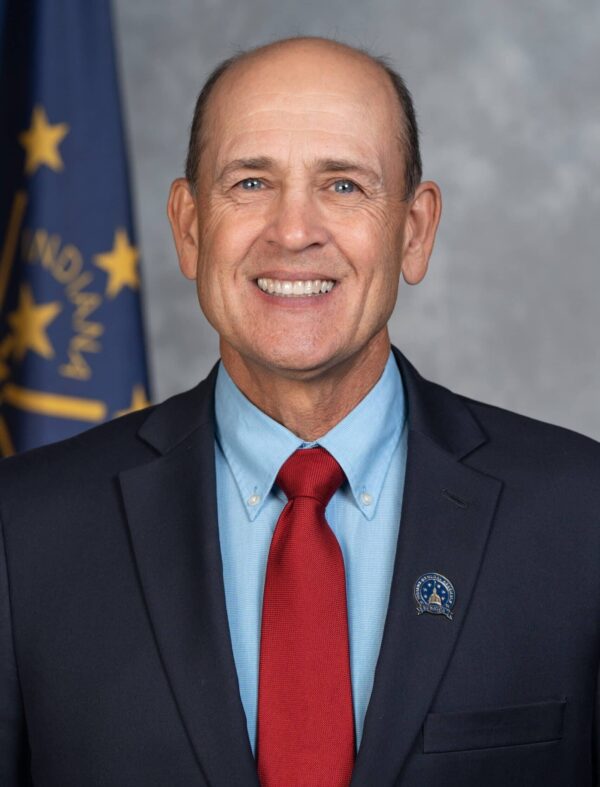
By Sydney Byerly
The Indiana Citizen
September 17, 2025
Hoosiers on both sides of Indiana’s newest sex education statute — and even the Republican state senator who wrote the law — say they are puzzled that a school board in northeastern Indiana is using it to justify removing classic literature from high-school shelves.
The confusion comes after the Garrett-Keyser-Butler Community School Corporation voted in early September to take six acclaimed books, including “The Handmaid’s Tale,” “Forrest Gump,” and “I Know Why the Caged Bird Sings,” out of its high school curriculum and library.
Meeting records show the district’s school board reached its decision during a September 5 special session that lasted less than 20 minutes, voting 4-1 to strike six books from the high school curriculum and library. Board member Dottie Fuentes cast the lone “no” vote, arguing that trained teachers, not elected board members, should decide what students read.
“Should we override what a trained teacher thinks is appropriate curriculum?” Fuentes asked.
“Yes,” replied board member Matt Freeze. “As a board, we control what we want our students to read and have. We decide what we want in our school.”
Board member Brent Weller added: “State law says any sexual content has to be approved. I say we just vote on it. I don’t think there’s any other way.”
The board quickly approved a motion to remove the six titles. Superintendent Dan Durrwachter said the special meeting was called to “expedite the process” after new policies took effect. The full discussion and vote are documented in publicly available meeting minutes and on the district’s YouTube channel.
In a statement explaining the move, the school district cited Senate Enrolled Act 442, a new law that requires school boards to review and approve all “human sexuality” materials and curriculum before it can be taught.
“With the support of our School Board, our district is reexamining areas of our curriculum, stemming from Senate Bill 442, which requires local school boards to approve all instruction and learning materials on human sexuality used for grades 4-12,” the Garrett-Keyser-Butler School District said in a statement to 21 ALIVE News on September 10 that was not attributed to any individual.
“That includes the removal of certain books from our instructional resources,” the statement said. “This decision was not made lightly… [It] is not about restricting access to ideas. Rather, it is about ensuring that the core resources we provide within our schools are purposeful, age-appropriate, and effective in supporting student learning.”
While the six titles, including works by Margaret Atwood, Maya Angelou and Khaled Hosseini, are set to be removed from shelves, some have raised questions about why a law crafted to regulate sex-education curricula became a rationale for removing celebrated works of literature.
When The Indiana Citizen reached out to school board president Mark Thrush for further comment, Thrush hung up the phone and ignored further calls. Neither the district office nor other school board members responded to requests for comment.
The school district’s move appears to be the first time Indiana’s new sex education law was cited in a decision to remove books from libraries. It confused both supporters and opponents of the bill, who said they don’t see how the new law is related to the district’s decision.
“It would be my interpretation that if these books were not being used as a part of the curriculum for human sexuality instruction, Senate Bill 442 would not apply,” said Joel Hand, general counsel for the Indiana Coalition for Public Education. “I earnestly find no application under Senate Bill 442 to the situation described.”
Cindi Hajicek, executive director of the conservative group Purple for Parents, who applauded the school district’s move overall, acknowledged that she “cannot see how SEA 442 applies.”

Even the bill’s author, state Sen. Gary Byrne, R-Byrneville, agreed the statute doesn’t expand school boards’ authority to police literature.
“The school boards already have the power and authority to approve all curriculum, and that includes our library books,” Byrne said. “The purpose of Senate Bill 442 was primarily just to make school boards do their job … and to put transparency in place. We just want, you know, things to be transparent so parents know, community knows, and more information out of what’s going on in our schools is good. It is good for education.”
Indiana has tightened rules on school content with two recent measures that emphasize parental oversight.
Senate Enrolled Act 442, which took effect this year, requires school boards to approve all instructional materials used in sex education for grades 4–12, post those materials publicly, and obtain parental consent. It also mandates lessons on sexual consent and the use of fetal-development videos if pregnancy is discussed.
House Enrolled Act 1447, a 2023 law, requires schools to publish online catalogs of every library book and create a formal process for parents or community members to challenge materials. It also removes a previous legal defense that protected educators and librarians who provided certain materials for educational purposes.
Together, the laws align Indiana with Republican-led states such as Florida and Texas that stress parental control, in contrast to states like California and New Jersey that have expanded protections for classroom and library content.
Some conservative education advocates say the Garrett-Keyser-Butler Community School Corporation’s decision is exactly what local boards should be doing.
“People are throwing around the word ‘banning’ and that’s simply not the case,” said Hajicek, the Purple for Parents executive director. “A ban means you cannot access them legally. The school board does not have the ability to regulate complete access to the books; they are just saying they are not going to be giving access in their schools. … It’s like yelling at them for stopping at a stop sign. They’re just following the law.”
“People need to wake up and look at these books with obscenity and harmful materials,” Hajicek added. “It’s a decent human matter to prevent this from getting into the hands of minors.”
Opponents counter that the Garrett action fits a national pattern of politicizing school libraries.
Cathy Fuentes-Rohwer, president of the Indiana Coalition for Public Education, said the Garrett vote reflects a much larger, politically driven campaign. She pointed to a concerted push toward similar legislation and challenges across the country.
“This isn’t about protecting kids from pornography,” she said. “It’s part of a national strategy to weaken confidence in public education and divide communities. Book challenges and ‘curriculum transparency’ laws are tools in a culture war meant to make public schools look dangerous so parents will abandon them.”
Fuentes-Rohwer argued that public schools “exist to educate all children, regardless of background or belief, so they can thrive in a multiracial democracy,” and that removing widely taught literature undermines that mission. Students, she said, need to “see themselves in stories and learn about the experiences of others” to become critical thinkers and engaged citizens.
“Public schools should be common ground where kids learn to think critically and see themselves reflected in literature,” Fuentes-Rohwer said.
Sydney Byerly is a political reporter who grew up in New Albany, Indiana. Before joining The Citizen, Sydney reported news for TheStatehouseFile.com and most recently managed and edited The Corydon Democrat & Clarion News in southern Indiana. She earned her bachelor’s in journalism at Franklin College’s Pulliam School of Journalism (‘Sco Griz!).
The Indiana Citizen is a nonpartisan, nonprofit platform dedicated to increasing the number of informed and engaged Hoosier citizens. We are operated by the Indiana Citizen Education Foundation, Inc., a 501(c)(3) public charity. For questions about the story, contact Marilyn Odendahl at marilyn.odendahl@indianacitizen.org.